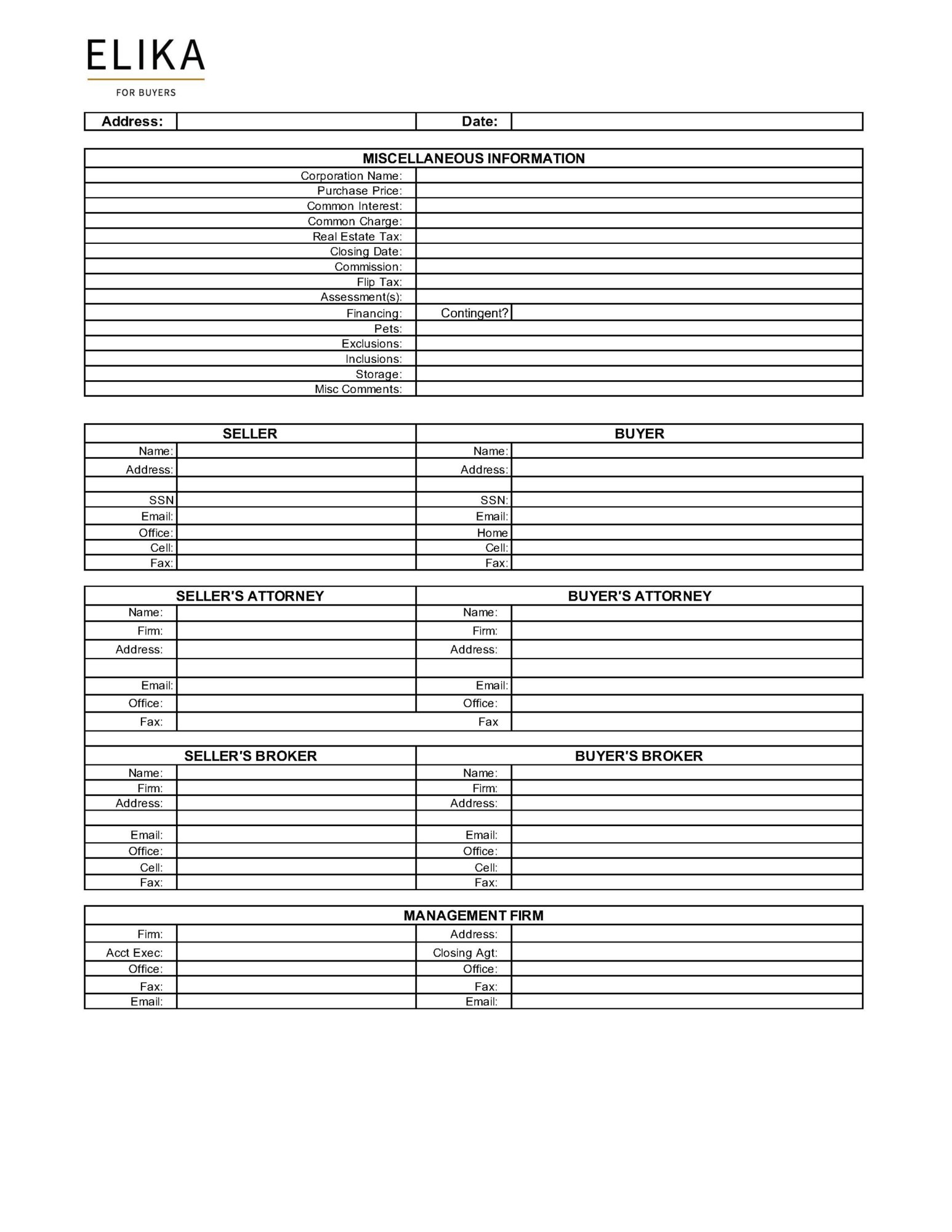Table of Contents Show
The home selling process in New York City can sometimes be bumpy with delays and last-minute renegotiations. Fortunately, once you have an accepted offer, you can move ahead with preparing a real estate deal sheet form. As the name implies, the deal sheet outlines the agreed-upon terms of the property sale between interested parties.
While the seller’s listing agent is typically responsible for drafting the deal sheet, it’s helpful for the seller and buyer to know what goes into a deal sheet and how it should be prepared. Below, we explain exactly that.
Deal Sheet 101Deal Sheet 101
Sellers and buyers need to understand that a deal sheet is not a binding document locking parties into completing the transaction. Instead, consider a deal sheet a preliminary step towards receiving a legally binding sales contract. The deal sheet includes a summary of the proposed and accepted terms for the transaction, with contact information for the buyers, sellers, real estate brokers, and attorneys.
While it will be circulated to every individual involved in the transaction, it is mainly for the benefit of the attorneys, who will check that everything is as agreed. Once they’re satisfied that everyone is on the same page (quite literally), the seller’s attorney will proceed to the next step of drafting the sales contract and rider.
It should be noted that if you’re trying to sell without the help of a listing agent (FSBO), you will be required to draft the deal sheet yourself. But if you’re working with a full-service listing agent (which tends to be the case for up to 99% of NYC transactions), they will handle the deal sheet’s drafting and circulation process.
A Snapshot of What Goes into the Deal SheetA Snapshot of What Goes into the Deal Sheet
A standard NYC deal sheet contains the following information:
- Terms of the sale (sales price, down payment, contingencies, expected closing date)
- Unit and building information (monthly maintenance charges/common charges, special assessments, number of shares (for co-ops), and monthly taxes (for condos)
- Contact information for all involved parties (buyers, sellers, both attorneys, the listing agent and buyer’s agent, and the mortgage lender)
The deal sheet must include all important contact information. This includes their name, current address, social security number, phone number, email, and fax number for the buyers and sellers. The attorneys’ information should include their name, the firm they work for, mailing address, email, office number, and fax number. The same goes for the brokers, who will need to include their name, brokerage name, address, agent license number, firm broker’s license number, commission split, office number, cell phone number, and fax number.
Transaction DetailsTransaction Details
Take a closer look; the deal sheet should include the following information about the transaction:
- Purchase Price – The agreed-upon sales price should be clearly stated
- Closing Date – If the buyer or seller wishes to close on a particular date, this should be clearly stated. Otherwise, it’s OK to go with the standard 60-90 days for a financed deal or 30-60 days for a non-financed all-cash offer.
- Financial Information – All information on how the purchase will be paid. For instance, the down payment percentage if the deal is mortgage financed.
- Exclusions/Inclusions – Any extra items included in the sale, such as furniture, light fixtures, etc.
- Contingencies – All agreed contingencies should be clearly stated, such as mortgage contingency, home inspection contingency, etc.
- Flip Tax – The building’s flip tax must be stated for co-op deals. Typically a percentage or a per-share dollar amount.
- Number of Shares – Also, the deal sheet must state the number of shares to be allocated when a co-op.
What Happens After the Deal Sheet is Drafted?What Happens After the Deal Sheet is Drafted?
After the seller’s listing agent has drafted the deal sheet, they will forward it to the buyer’s agent, who will complete half of the document. Once both agents are satisfied with its contents, the completed deal sheet will be circulated to all the brokers and attorneys working on the transaction. The attorneys will then contact each other to draft the purchase contract and rider.
From there, things will move ahead to the due diligence period. Seasoned listing agents will typically include the offering plan, house rules, and building financials for the due diligence process with the deal sheet to ensure no delays.
Final ThoughtsFinal Thoughts
Deal sheets can be found in many industries, but they are more common in real estate transactions. It may seem like a simple formality, but essential in the home selling process. While the listing agent will handle the drafting and circulation of the deal sheet, it’s still critical that sellers understand the process.

